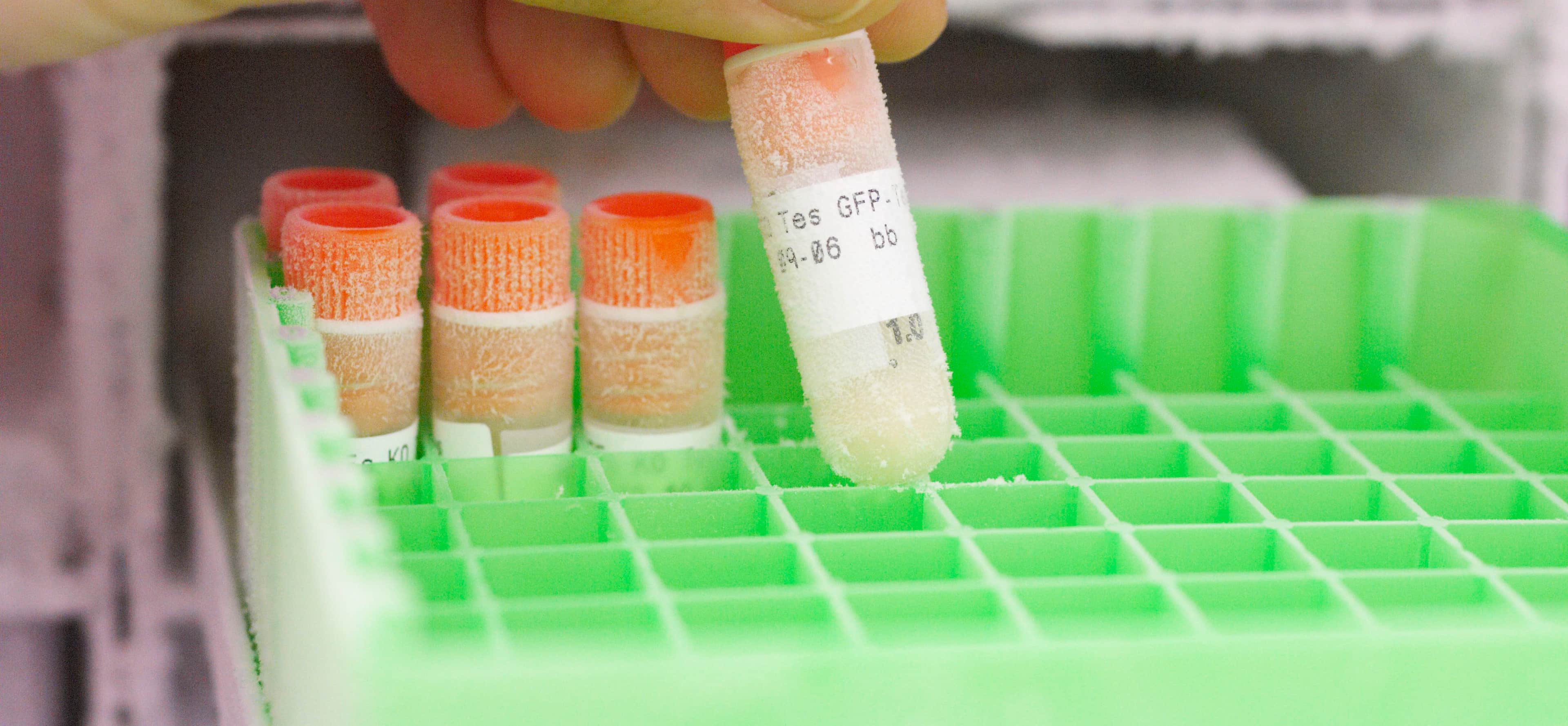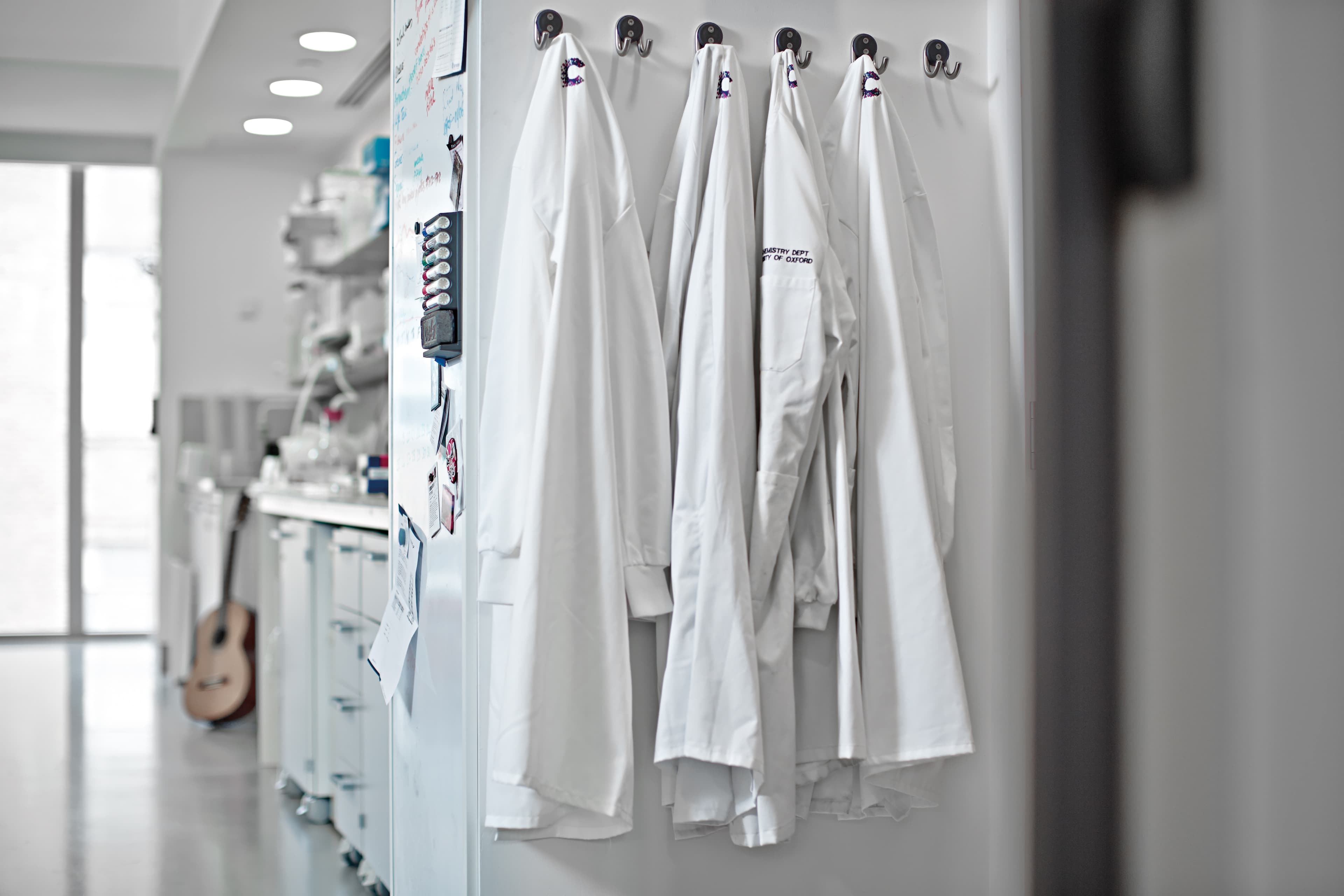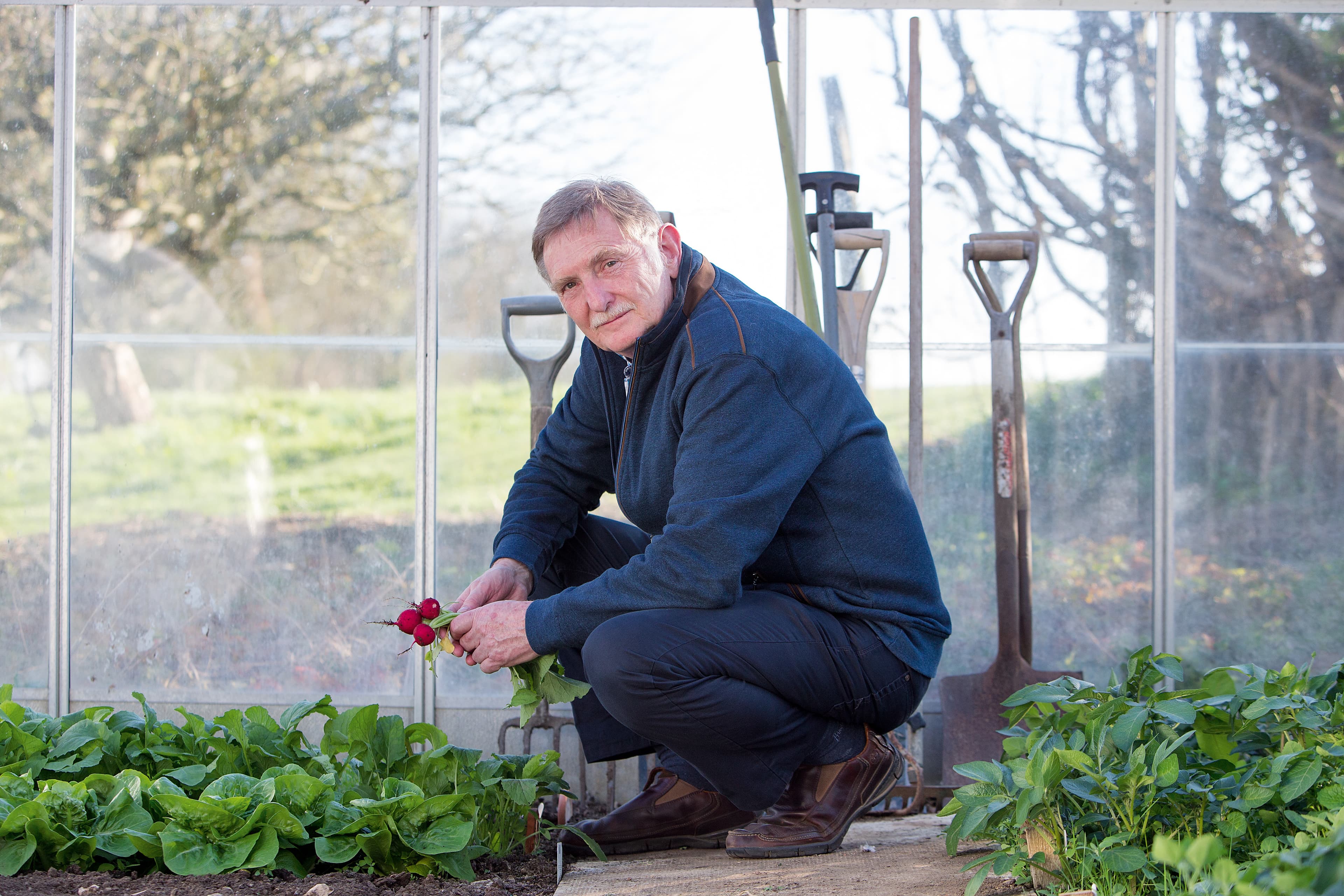
We’ve made oesophageal cancer one of our top priorities: it is one of four ‘hard to treat’ cancers highlighted in our 2014 strategy. This means we are increasing funding for research into oesophageal cancer, and looking for ways to boost the number of scientists working in the field. Below are some examples of what our researchers are doing to tackle oesophageal cancer right now.
Professor Rebecca Fitzgerald in Cambridge is running a trial called BEST4. The trial will explore if the Cytosponge, a ‘sponge-on-a-string' test for Barrett’s oesophagus developed by Fitzgerald, can prevent deaths from oesophageal cancer when offered as a screening test to people on long-term medication for heartburn – one of the most common Barrett’s oesophagus symptoms. It will also investigate if the Cytosponge, coupled with additional lab biomarker tests, can be used to monitor people already diagnosed with Barrett’s oesophagus instead of endoscopy, an invasive hospital procedure.
Find out more about 'sponge-on-a-string'
Dr Phil Jones in Cambridge is studying how healthy oesophageal stem cells become mutated and develop into cancer. His work will shed light on the early stages of oesophageal cancer development. Armed with this new information, he hopes to test whether new and existing drugs can destroy these mutated stem cells, and prevent oesophageal cancer developing.
Learn more about oesophageal cancer around the world
Barrett’s oesophagus is a condition that causes glands to form in the oesophagus due to extra acid and bile. Some of these glands can evolve into cancer, but at the moment we don’t know why. Dr Stuart McDonald in London is investigating how the glands change and whether we can predict which patients are likely to develop cancer. This work may help reduce the number of patients having endoscopies.
Read more about Dr McDonald's work

Thanks to research, we've helped change the outlook for people with oesophageal cancer.

Meet people like Tony who have experienced first-hand how our research is making a difference. The life-saving research we do wouldn’t be possible without your support.
Want to find more information about our research or oesophageal cancer?